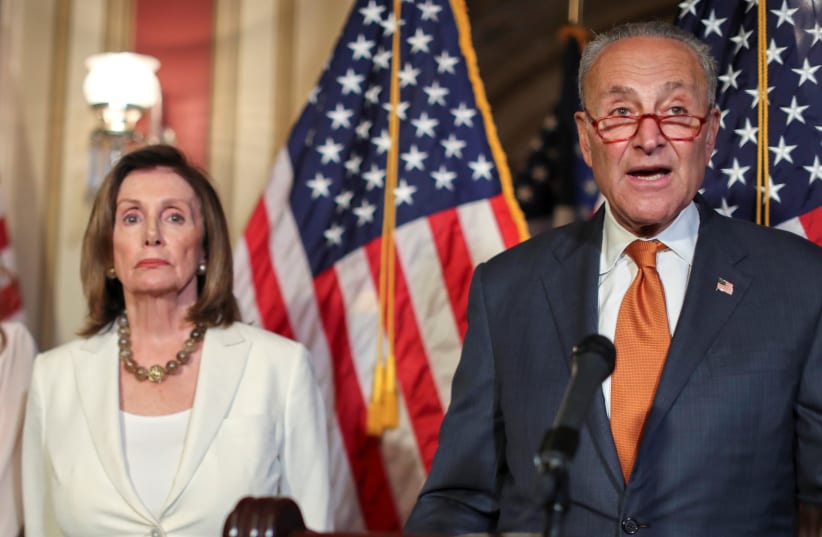Last week, Congress authorized an increase of the funding for the program by 50%, from $60m. in 2019 to $90m. in 2020.In addition, Schumer said he would promote a significant increase of federal funds that are used to prosecute hate crimes, from $5m. to $100m.There is “an enormous amount of fear” in the Jewish community, Allen Fagin, executive vice president and chief professional officer of the Orthodox Union, told The Jerusalem Post on Monday.“When you have the situation that we currently have in New York, where people are afraid to walk with their children on the street, or afraid to walk into their shuls [synagogues] or to grocery stores, to live their everyday lives, it’s a monumental tragedy,” he said.Fagin called for more resources to meet the security needs of the community, “in terms of police protection and in terms of changes in the law to make clear that hate crimes and crimes of antisemitism are prosecuted at the highest level possible.”This is necessary “to make sure that there is adequate security in shuls and yeshivas and day schools and on the streets of our communities,” he said.“This requires not only additional police protection, but also adequate resources, because there are not enough resources to have a policeman in front of a shul 24 hours a day,” Fagin said. “Unfortunately, it takes a tragedy in order to get state and local government to respond the way they need to respond.”Also on Monday, the UJA-Federation of New York (UJA) and the Jewish Community Relations Council of New York (JCRC-NY), in partnership with The Paul E. Singer Foundation and Carolyn and Marc Rowan, announced that Mitchell D. Silber has been named the executive director of the Community Security Initiative, “a new position created as part of UJA and JCRC-NY’s $4 million plan to help secure local Jewish institutions in the New York region,” the UJA said in a statement.I am honored to stand against hate and anti-Semitism with the community at @JCCRockland.America is in a national crisis.I’m calling for much stronger federal action to increase funds to protect places of worship and prosecute hate crimes. pic.twitter.com/PCUQ4F5NKC
— Chuck Schumer (@SenSchumer) December 31, 2019
Chuck Schumer to push quadrupling the budget for security grants program
The Nonprofit Security Grants Program (NSPG) allows houses of worship and other nonprofits to apply for grants of up to $100 thousand for each institution.
